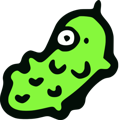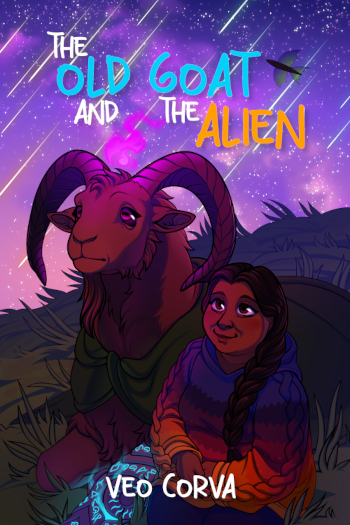enne📚 reviewed The Old Goat and the Alien by Veo Corva
The Old Goat and the Alien
4 stars
The Old Goat and the Alien is a cozy, fluffy scifi novel that is largely inwardly focused on character growth and interpersonal conflict. It's also hella queer. This book is exactly the soft hug I expected it to be.
The main plot hook is that grumpy, goat-shape Avari inadvertantly becomes the host for the newly arrived "alien" (human) Jenna who shows up through a portal with no resources and no friends. This book has a confetti grab-bag of genders and trans and queer and disability flavors. I love love the gift economy. I also super appreciate the detail of having a major side character be a plural system that is chimera-shaped.
A story with this many identities also creates so much space for nuance; there's different kinds of disability accommodations, there's two very different ways of being autistic, there's many different ways of being trans.
(also Tak! …
The Old Goat and the Alien is a cozy, fluffy scifi novel that is largely inwardly focused on character growth and interpersonal conflict. It's also hella queer. This book is exactly the soft hug I expected it to be.
The main plot hook is that grumpy, goat-shape Avari inadvertantly becomes the host for the newly arrived "alien" (human) Jenna who shows up through a portal with no resources and no friends. This book has a confetti grab-bag of genders and trans and queer and disability flavors. I love love the gift economy. I also super appreciate the detail of having a major side character be a plural system that is chimera-shaped.
A story with this many identities also creates so much space for nuance; there's different kinds of disability accommodations, there's two very different ways of being autistic, there's many different ways of being trans.
(also Tak! shoutout in the thanks section??)

